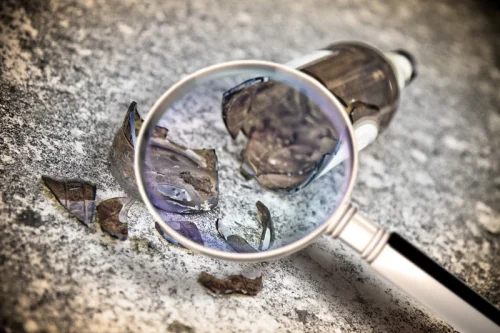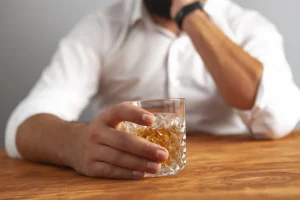
A sober life doesn’t have to mean more time at home as you try to block out triggers. It can mean more time for your other interests, and even new interests. More time to meet new people, catch up with old friends and try new things. In order to change your drinking habits, your first step is to take a close look at your current behaviors and find patterns. She has experience covering all things health, fitness, nutrition, and wellness and adheres to the highest journalistic standards. At the end of the day, one of the most important tools you have at your disposal is self-compassion.
months after you stop drinking alcohol:

Stopping alcohol can make you feel happier by allowing you to experience positive emotions without alcohol. Quitting alcohol can help reduce the depression and anxiety that alcohol can bring and significantly improve your situation in life, increasing your overall happiness. By the end of your first month of sobriety, the benefits of better sleep, improved hydration, spending less and decreased calorie intake will be growing. You will likely have saved over $800 and avoided about 12,000 calories or more, allowing you to lose at least four pounds. By the end of this first month, your recovery will be well underway, and your struggle with alcohol will begin to become more of a distant memory than a recent struggle. By week three, you will have saved about $450–$600 from not buying alcohol.
Alcohol and Bupropion: 4 Things to Know About This Risky Combination
Realizing that you want to stop drinking is important, but actually stopping can be easier said than done. Whenever you decide it’s time to stop, work out a realistic and practical plan that focuses on safely reducing your use. By Sarah Bence, OTR/LBence is an occupational therapist with a range of work experience in mental healthcare settings. There are many what happens when you stop drinking support options available that can help guide you through alcohol withdrawal, as well as abstaining from alcohol after withdrawal. Remember you are facing a difficult challenge during alcohol withdrawal, but you are not alone. There are many resources available to help, including peer support groups, counseling, therapy, and inpatient rehabilitation.
What does alcohol do to your body?
- Being dependent on alcohol can cause physical withdrawal symptoms like shaking, sweating or nausea.
- Alcohol use disorder is a pattern of alcohol use that involves problems controlling your drinking, being preoccupied with alcohol or continuing to use alcohol even when it causes problems.
- As a therapist that helps people stop drinking, I often hear from clients that they want to make a change, but are intimidated by the potential of experiencing withdrawal symptoms.
- According to a study published in the American Journal of Nutrition, alcohol is one of the biggest drivers of excess food intake.
- Your doctor or substance abuse therapist can offer guidance and may prescribe medication like benzodiazepines or carbamazepine to help you get through it.
If your vessels over-dilate, they can burst, leaving you with small peripheral veins that can become permanently enlarged (you may notice these as broken red veins around your nose and on your cheeks). Lack of vasopressin also means blood vessels are less able to constrict. ‘This could lead to broken capillaries and telangiectasia, where red lines appear on your skin,’ says A-list facialist Kate Kerr. ‘Alcohol deprives skin of vitamin by preventing its absorption and speeding up the breakdown of your existing stores,’ says Dr David Jack, Harley Street aesthetic doctor. You can become conditioned to reach for a drink when your environment offers up certain cues. You may also consider joining an online support group to help you feel less alone.

Your body’s systems bounce back over time, but after about 30 days, you’ll start seeing a difference. There’s also likely to be some weight loss within a month, due to the absence of the calories you were ingesting in alcohol (as long as you haven’t swapped them for equally high-calorie comfort foods). After two weeks into quitting alcohol, you may start to lose weight, due to the removal of calories from alcoholic drinks.
- If you’re having difficulty sticking to your goal or just want some extra guidance, consider reaching out for professional support.
- Medical detox ensures you will be as safe as possible by providing 24/7 monitoring that helps recognize and treat complications effectively and as rapidly as possible.
- It’s the oldest trick in the book and probably the most effective one, too.
- If you want to level up your health, cutting back significantly on alcohol yields several physical and mental health perks.
- Neurotransmitters can rebound beyond their usual activity levels, which can leave you feeling anxious and irritable.
- According to the National Cancer Institute, alcohol use has been linked to an increased risk for cancers of the mouth, liver, breast, colon, and rectum.
Millions of people join support groups to help stop drinking and stay stopped. Studies show support groups play an instrumental role in helping people develop healthy social networks that result in continued sobriety. A rare but very serious syndrome called delirium tremens can occur during alcohol withdrawal. Also known as DTs, an estimated 2% of people with alcohol use disorder and less than 1% of the general population experience them. Unhealthy alcohol use includes any alcohol use that puts your health or safety at risk or causes other alcohol-related problems. It also includes binge drinking — a pattern of drinking where a male has five or more drinks within two hours or a female has at least four drinks within two hours.
- Research shows that drinking large amounts of alcohol before bedtime leads to decreased sleep onset and disrupted, poor quality sleep later in the night.
- After stopping alcohol, inflammation in your liver caused by alcohol will subside.
- This process temporarily restores homeostasis, or chemical balance, in an effort to counteract the impact of long-term alcohol use on the brain.
- There are many different factors that can affect the severity of alcohol withdrawal.
- The rate at which the liver breaks down or metabolizes alcohol depends on several factors like your genes, age, and weight, how much alcohol you consumed, and what you’ve eaten.
- You may want to practice politely declining before going out so that you feel more confident in doing so.
The 7 Best Foods and Drinks for a Hangover (and 4 to Avoid)
That’s especially true for those who drink large amounts for long periods of time. If you have alcohol use disorder and want help, a healthcare provider can guide you to resources and rehabilitation programs to help you quit. Know that your provider will be there to support you, not to judge you.
- The mental health changes you experience when you stop drinking can include symptoms of withdrawal, difficulty sleeping, irritability, mood swings, and clearer thinking.
- In extreme situations, you could become very agitated, see or feel things that aren’t there, or even have a seizure.
- Like a downhill skier picking up speed, the momentum—and benefits—really start to build after a month of quitting drinking.
- If you use more than that, cutting back or quitting may lower your blood pressure, levels of fat called triglycerides, and chances of heart failure.
- This article discusses alcohol withdrawal, its symptoms, and potential complications.
- There are two types of alcohol withdrawal, acute withdrawal and post-acute withdrawal, also known as ‘PAWS’.
How to Stop Drinking: Making a Plan That Works for You

After 3 Days Without Alcohol


